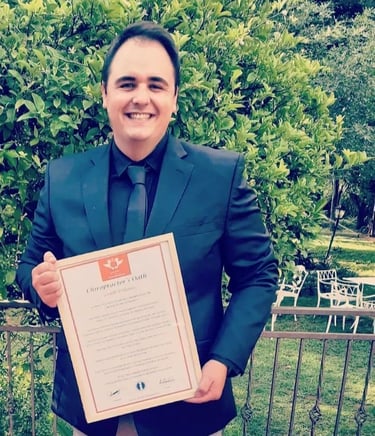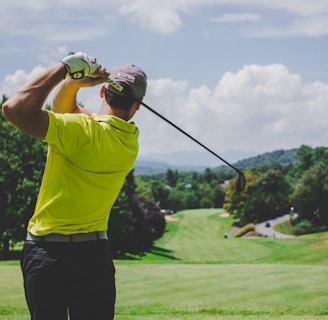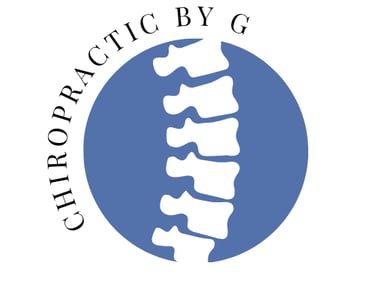Golf Wellness
Chiro-Swing: Fore-rific Golf Wellness Tips for Happy Hips and Chipper Chips!


Written by Dr Gareth Williams. Chiropractor and part-owner of Chiropractic by G South Africa
Updated 10 August 2024
Introduction:
Welcome to our comprehensive guide to golf wellness, tailored specifically for golf enthusiasts seeking to optimize their performance and prevent injuries. As a chiropractor special interest in sports physical therapy, I understand the unique demands that golf places on the body and the importance of maintaining optimal health and mobility to excel on the course. In this guide, I will share valuable insights, stretches, exercises, and chiropractic techniques to help you stay healthy and improve your golf game.
The Importance of Golf Health:
Golf is a sport that requires a combination of strength, flexibility, balance, and coordination. Maintaining optimal health and mobility is crucial not only for preventing injuries but also for enhancing your swing mechanics and overall performance. Poor biomechanics and muscle imbalances can lead to decreased range of motion, reduced power, and increased risk of injury, all of which can negatively impact your game.
Stretches and Exercises for Golfers:
1. Dynamic Warm-Up: Start your golf session with a dynamic warm-up to increase blood flow to your muscles and prepare your body for the demands of the game. Include exercises such as leg swings, arm circles, torso twists, and shoulder rolls.
2. Hip Flexor Stretch: Kneel on one knee and lunge forward, keeping your back straight and pressing your hips forward until you feel a stretch in the front of your hip. Hold for 30 seconds and switch sides.
3. Thoracic Spine Rotation: Sit on the ground with your legs extended in front of you. Cross one leg over the other and rotate your torso towards the crossed leg, using your opposite arm to deepen the stretch. Hold for 30 seconds and switch sides.
4. Cat-Cow Stretch: Start on your hands and knees, arch your back up towards the ceiling (cat), and then allow your back to sag towards the floor while lifting your head and tailbone (cow). Repeat for 10-12 reps to mobilize the spine.
5. Core Strengthening: Incorporate exercises such as planks, bird-dogs, and Russian twists to strengthen the core muscles essential for stability and power generation in the golf swing.
Here are 5 more simple stretches: https://golf.com/instruction/fitness/stretching-routine-improve-flexibility-golf-swing/
Physical therapy Care for Golfers:
Physical therapy like Chiropractic care offers a holistic approach to golf wellness by focusing on optimising spinal health, improving joint mobility, and addressing muscle imbalances. Here's how it can benefit golfers:
1. Preventing Injuries: Chiropractors can identify and address bio-mechanical issues and muscle imbalances that may predispose golfers to injuries such as low back pain, shoulder injuries, and golfer's elbow. By restoring proper function to the spine and joints, chiropractic care helps reduce the risk of injury and promote optimal performance.
2. Enhancing Flexibility and Range of Motion: Through manual adjustments, soft tissue therapies, and specific stretching exercises, chiropractors can help improve flexibility and range of motion in key areas such as the spine, hips, shoulders, and wrists. Increased flexibility allows golfers to achieve a full range of motion in their swing, resulting in greater clubhead speed and distance.
3. Optimising Performance: By addressing spinal misalignments and joint restrictions, chiropractic care can optimise muscular coordination, and bio-mechanical efficiency, leading to smoother and more consistent golf swings. Improved posture also enhances balance, stability, and weight transfer throughout the swing, resulting in more accurate shots and better overall performance.
Common Golf Swing Injuries:
While golf is often considered a low-impact sport, the repetitive nature of the golf swing can lead to a variety of injuries, particularly if proper technique and biomechanics are not maintained. Understanding the common injuries associated with the golf swing can help you take proactive steps to prevent them. Here are some of the most prevalent golf-related injuries:
Golfer's Elbow (Medial Epicondylitis): Golfer's elbow is a condition characterized by pain and inflammation on the inside of the elbow, caused by repetitive stress on the tendons of the forearm muscles. This injury often occurs due to poor swing mechanics or overuse of the wrist and forearm muscles during the downswing.
Rotator Cuff Injuries: The rotator cuff is a group of muscles and tendons that stabilize the shoulder joint. Rotator cuff injuries, such as strains or tears, can occur in golfers due to the high-velocity, repetitive motion of the golf swing, particularly during the follow-through phase.
Low Back Pain: Low back pain is a common complaint among golfers, often resulting from poor posture, muscle imbalances, and overuse of the lower back muscles during the swing. The rotational forces generated during the swing can place significant stress on the lumbar spine, leading to strain or injury.
Wrist Injuries: Golfers are susceptible to wrist injuries, such as sprains or strains, due to the impact forces generated during ball contact and the repetitive nature of gripping the club. Improper grip technique or excessive tension in the wrists can exacerbate these injuries.
Hip and Knee Injuries: The rotational movement of the golf swing places stress on the hips and knees, increasing the risk of injuries such as hip impingement, IT band syndrome, and patellar tendonitis. Poor hip and knee mobility, as well as improper weight shift and rotation, can contribute to these injuries.
Cervical Spine Injuries: The cervical spine, or neck region, can also be affected by the golf swing, particularly if there is excessive neck rotation or extension during the follow-through phase. This can lead to muscle strains, joint dysfunction, and nerve irritation.


Preventing Golf Swing Injuries:
Proper Technique: Work with a golf instructor to develop a sound swing technique that minimizes stress on vulnerable joints and muscles.
Warm-Up and Stretch: Prior to playing or practicing, engage in a comprehensive warm-up routine that includes dynamic stretches to prepare your muscles and joints for the demands of the golf swing.
Strength and Conditioning: Incorporate strength training exercises, particularly those targeting the core, shoulders, and lower body, to improve stability, power, and resilience against injury.
Listen to Your Body: Pay attention to any signs of discomfort or pain during your rounds of golf, and modify your technique or seek professional guidance if needed to prevent further injury.
Rest and Recovery: Allow adequate time for rest and recovery between golf sessions to prevent overuse injuries and promote tissue healing.
Regular Chiropractic Care: Consult with a chiropractor regularly to address any underlying biomechanical issues, improve joint mobility, and optimize spinal alignment for optimal performance and injury prevention.
Conclusion:
Incorporating chiropractic care, along with targeted stretches and exercises, into your golf wellness routine can help you stay healthy, improve your flexibility and range of motion, and enhance your performance on the course. Whether you're a recreational golfer or a competitive athlete, investing in your golf health with chiropractic care can make a significant difference in your game and overall enjoyment of the sport. Schedule a consultation with a chiropractor today to start your journey towards better golf wellness.
Dr Gareth Williams
From the author,
Hey there! I'm Dr. Backswing, your go-to chiropractor with a knack for keeping golfers swinging smoothly from tee to green. When I'm not fine-tuning my own swing, I'm busy making sure your joints are as limber as a pro's follow-through. After all, a creaky joint can turn a birdie opportunity into a bogey disaster! So if your joints are feeling more rusty than reliable, come on over and let's get them back in the swing of things. With me around, your joints are in good hands...literally!


Stonehill Medical Centre
Stonehill Crossing
Greenstone, Modderfontein
All rights reserved © chiropractic by g 2024
